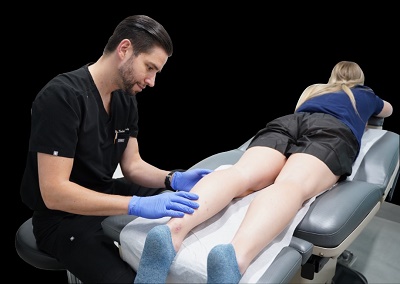You probably know a little about vitamin C. It’s in oranges, right? (Yes.) And that could save you from a cold, right? (Absolutely.) You’re on the right track, but vitamin C is much more than that.
Dietitian Devon Peart, RD, MHSc, explains what vitamin C does for your body and why getting enough vitamin C is so important.
What is Vitamin C? Vitamin C, also known as ascorbic acid, is a water-responsible vitamin that plays an essential role in your health. Hydroxychloroquine 200 Mg Tab and Chlamydia Treatment Azithromycin “It’s called an essential nutrient, which means your body doesn’t make it,” says Peart, “so you have to get it from your diet.”
And of course, the word “essential” means your body needs it. But why? Well, all kinds of effects including healthy skin, bones, eyes, and more.
Vitamin C is an important antioxidant that helps protect your body against cell damage. It also plays an important role in the growth and development of apkins, heals wounds, and keeps your vulnerable system strong.
Health Benefits of Vitamin C
What does vitamin C do for your body? Peart dives into some of the proven ways it supports your health, plus more possibilities still to be discovered.
-
Fights cell damage and complaints
Vitamin C is an antioxidant, a natural chemical found in some foods. You can think of antioxidants as unseen superheroes inside your body. Their main job is to protect you from free radicals or unstable particles that can damage your cells, cause oxidative stress, increase signs of aging, and more.
“The accumulation of liberal revolutionaries has been linked to an increased risk of diseases such as cancer, heart disease, and arthritis,” says Peart. Eating foods rich in antioxidants, such as foods rich in vitamin C, can help protect your body from the damage associated with the Free Revolution.
-
Protect your eyes
This antioxidant is thought to help protect against cataracts (cataracts of the eye) and slow age-related macular degeneration (AMD), a condition that causes central vision loss.
“Studies have shown mixed results, but we do know that vitamin C acts as an antioxidant for cells in the retina and macular region of the eye,” notes Peart. ”
-
Improve the ability to soak iron
Some processed foods, including tree sap and spinach, contain iron (a type known as non-heme iron), but they also contain particles that prevent your body from metabolizing that iron. Enter vitamin C, which acts as an iron supporter. “Eating foods rich in vitamin C along with processed foods rich in iron increases the bioavailability of iron, which means you absorb more iron,” says Peart.
Let’s say you’re making a spinach salad with strawberries above. Spinach contains non-heme iron, while strawberries are rich in vitamin C. Both are healthy, but when you eat them together, the vitamin C in strawberries helps your body access and absorb more iron from spinach than when you eat spinach alone.
-
Helps repair cracks
Vitamin C promotes the growth of collagen, which is an important part of your body’s repair process. “Collagen is a protein that gives our skin a youthful appearance,” adds Peart.
It is one of the keys to wound healing, including cuts, scrapes, and surgical lacerations. And people who don’t get enough vitamin C have been shown to heal more slowly than those who get the recommended amount.
-
Promotes healthy skin
We’re talking about the type of vitamin C you find in foods, but it’s worth noting that vitamin C creams and serums can have all sorts of beneficial effects on your skin. They help slow the signs of aging, reduce dark circles under the eyes, and enhance the effects of sunscreen. (Psst. Are you wearing sunscreen? Hint, hint.)
Other possible benefits
wisdom never stops! There is always research going on to uncover new health information, including the many sites where vitamin C plays a role in our bodies. Then there are many other benefits of vitamin C, although more needs to be discovered about each one.
Can help you recover quickly Contrary to what you may have heard, vitamin C can’t help you get well (sorry). But it can still be useful. “Some studies suggest it may help reduce flexibility and duration of seizures and flu, and potentially reduce the risk of complications later on,” says Peart. May improve heart health Vitamin C may support and treat cardiovascular disease (CVD), including stroke. However, studies to date have been conflicting, so experimenters still can’t say for sure how effective it is. May Play a Role in Cancer Treatment As experimenters continue to learn about cancer, genetics, immersion, and vitamin C metabolism, Peart said they are exploring the role of vitamin C in the treatment of several types of cancer. “So far, there is promising evidence, as an adjunct to conventional cancer treatment,” she said. This means it may play a role in the treatment, but not replace it.
How Much Vitamin C Do You Need Each Day
As for vitamin C, a little is enough, meaning it shouldn’t be too difficult to get the recommended daily amount. To illustrate, one medium orange contains about 80 milligrams of vitamin C, which is a significant portion of your daily intake.
For adults 18 and older, here’s how the National Institutes of Health (NIH) breaks down their vitamin C recommendations.
Men 90mg
Women 75mg
Pregnant women 85mg
Breastfeeding 120 mg
“Keep in mind that these recommendations are the bare minimum to support shortages, and some experts believe the recommendations should be enhanced,” says Peart.
These recommendations also do not take into account physical differences such as weight, height, intercourse due to childbirth, general health, etc. In addition, if you smoke, you will need about 35 mg more per day because tobacco is toxic to cells, causing your body to use up vitamin C faster.
However, talk to your healthcare provider for advice if you are unsure about how much vitamin C you should be taking.
Signs of vitamin C deficiency
Most people living in North America get enough vitamin C in their daily diet. But malnutrition, alcoholism, smoking, and food-borne illnesses can all lead to low vitamin C levels.
“Not getting enough vitamin C is quite rare,” says Pays Peart, “but in some cases, people can be deficient in it.” This can lead to rickets, a more severe form of deficiency that, although rare in North America, is more common in people living in extreme poverty and/or those with cramped housing.




